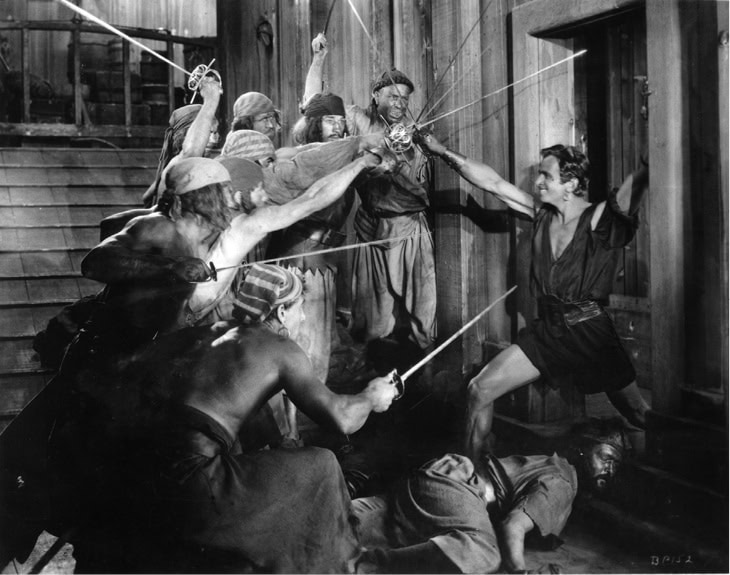The phrase “lessons of history” virtually never appeared in English-language books at the beginning of the 19th century, to judge by the results provided via Google’s Ngram Viewer. It became increasingly popular, reaching its 19th-century apogee in 1848, before fading again. In the 20th century its usage peaked around 1918-22, 1941-43, and 1961-70. Perhaps political and military crises in the English-speaking world bring out reflections on the utility of history. Since 1962, the phrase has appeared in a smaller and smaller proportion of books. In 2008 (the latest year for which Ngram Viewer has data) its frequency was only slightly more than half what it was in the mid-1960s.

A Google Books Ngram Viewer shows appearances of the phrase “lessons of history,” 1800-2008. For an Ngram comparing use of the phrases “lessons of the Great Depression,” “lessons of Munich,” and “lessons of Vietnam.”
So are the lessons of history fewer these days? Are people, or at least authors, losing faith in the practical utility of history? Do lessons exist at all? I’d say, yes, lessons do exist, but they are hard and slowly won, perhaps too slowly for busy people active in the policy arena. Thucydides, whose data are even less up to date than Ngram Viewer’s but who thought carefully about the purposes of writing history, implied that such lessons do exist. In justifying his work on the Peloponnesian War, he wrote: “if it be judged useful by those inquirers who desire an exact knowledge of the past as an aid to interpretation of the future, which in the course of human things must resemble if it does not reflect it, I shall be content.” Indeed he hoped his book might be-as it is-“a possession for all time.” But Thucydides did not explain just how to use one’s knowledge of the past.
As an inside-the-Beltway historian, most of what I hear and read about the lessons of history concerns policy lessons for the US government, and most of it would appall most professional historians. We hear about the lessons of the Great Depression as a guide to how to approach the post-2008 economic slump from luminaries such as Federal Reserve Chairman Ben Bernanke. We can read about the lessons of Vietnam according to David Petraeus, former CIA director, four-star general, and commander of US forces in Iraq and Afghanistan. And former Secretary of State Madeleine Albright often referred to the lessons of Munich in discussions of Bosnia and Rwanda, among other contexts. Less prominent figures make such references and analogies all the time.
Most historians, I suspect, would find it tempting to poke holes in the usual invocation of these lessons. The position of the US within the global economy is vastly different today than it was in the 1930s; Iraq or Afghanistan of the 21st century are miles apart (figuratively as well as literally) from Vietnam in the 1960s and 1970s; and Bosnia and Rwanda in the 1990s bore scant resemblance to Europe of 1938. Most historians, I suspect, are accordingly leery of using historical analogy as a guide to current policy. It seems, to twist Santayana’s aphorism, that those who do remember the past are condemned to misuse it-or at least those fragments that become shorthand for political principles.
Albright, Bernanke, and Petraeus are all wise and experienced in the ways of the world. They too know that contexts are different in the analogies they make. Bernanke studied the Depression as an academic. Petraeus was part of an army generation steeped in the experience of Vietnam and wrote a PhD thesis on it. Albright lived through Munich in her Czech childhood and lived with its consequences thereafter. Of course, it could be that they and the legions in and around government who also use these phrases are deploying them tactically, in effect conscripting the past to serve in current political battles without necessarily believing in the analogies they offer. I suspect, however, that is not always true. In the case of Albright, whose own life was powerfully shaped by Chamberlin and Daladier’s appeasement of Hitler, I am pretty sure that she was sincere in most of her evocations of Munich.
From a Washington-centric perspective, it looks to me that references to the lessons of this or that historical event tend to involve (a) fairly traumatic moments (b) usually from the military or foreign policy realms, that (c) took place within the lifetime of the person making the reference.
Americans, whether in the corridors of power or in conversations on buses and in bars, almost never speak of the lessons of this or that aspect of domestic history except for the Great Depression. And even that, again according to Google Ngram Viewer results, runs far behind Vietnam and Munich (despite the fact that the US was not directly involved in the Munich conference). Nobody refers to the lessons of Jamestown, Gettysburg, or Selma. Nobody seeks historical lessons in the distant past, although the Peace of Westphalia might have as many lessons for us as Munich. Anyone who suggested Sima Qian’s account of Han Dynasty struggles with steppe tribes might be at least as instructive for us as Vietnam would be regarded, here in Washington at least, as daft. Nobody ever tries to find lessons of history from slow-unfolding processes or the realms of, say, social history. So the roster of the lessons of history is shallow both topically and chronologically.
It will be interesting to see if anyone still invokes the lessons of Munich in 20 years, when no one under 100 years old will remember it. On the Google Ngram test, the phrase “lessons of Munich” has been in decline since 1991 (and “lessons of Vietnam” since 1987). Will we coin new phrases for the same purposes? Will politicians, pundits, and bloggers (and the more erudite among radio shock jocks) refer to the lessons of Iraq or Afghanistan? I expect they will.
So are there lessons of history? In a direct and narrow sense, I would say not. To twist Empedocles, you can’t face the same foreign policy quandary twice. Neither Munich nor Vietnam tells us what to do about Syria or Iran or North Korea. The Great Depression tells us nothing-directly-about what policies to pursue in the current economic doldrums. There are no lessons of history that can be acquired in one sitting. Historical analogies, when used in the policy arena, are facile and untrustworthy. Using them is misusing history, and probably at least as bad a procedure as navigating the shoals of policy-making in complete ignorance of all history.
So is there anything left? Yes, I would say there is. A general knowledge of history acquaints you with the plausible range of possible outcomes from any initiative. It helps you to assess probabilities and to respect the unexpected. It deepens your humility in the face of the law of unintended consequences. It shows you the limits of intentionality in human affairs.
All these are useful lessons but none of them can be properly learned in an afternoon. One needs a broad repertory of examples, a deep fund of knowledge, an extensive frame of reference to profit in a practical sense from history. Few people in public life feel they have the luxury of sustained study of anything. So the temptation to indulge in shorthand allusions to widely remembered historical events is hard to resist.
Historians perhaps can put their knowledge to public use a bit more than we do. We can, easily enough, chastise the use of facile comparisons. We can, somewhat less easily, use our funds of knowledge to comment on the plausible range of outcomes from proposed courses of action in public affairs. We can, albeit with greater difficulty, infiltrate the corridors of power and whisper our wisdom in the ears of the high and mighty-as, once upon a time, high priests of Babylon did and as professional economists routinely do today.
We can do all this, and more, but would do well to remember that, regardless of our wishes and intentions, some denizens of those corridors will not make time to listen, and will prefer to indulge in the 21st century’s equivalents-to indulge in facile analogy-of cavorting with strippers in Washington’s Tidal Basin or, to resort to the more distant past, trying to make their favorite horse a proconsul. The recurrence of foible and folly on the part of the powerful is among the more reliable lessons of history.



